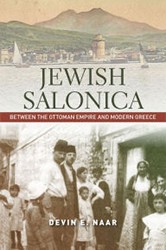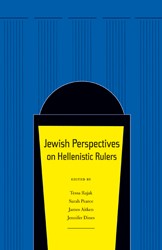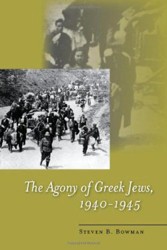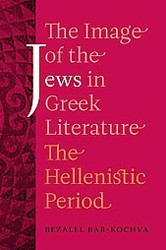In this work of nonfiction, French Greek historian Anastasios Karababas provides a lively, comprehensive overview of the vibrant yet tragic history of the Jews of Greece. The Jewish community in Greece was one of the most diverse in Europe and contributed significantly to the region’s cultural and economic life.
The first Jews, the Romaniotes, settled in Greece during the first century BCE after the Babylonians destroyed the temple in Jerusalem. They were followed by the Ashkenazim from central and Eastern Europe, who fled persecution from the eleventh through the sixteenth century. The Sephardim arrived in 1492 after their expulsion from the Iberian Peninsula during the Ottoman period and settled primarily in the North. Italian Jews, fleeing the Spanish occupation, also settled in the North in the sixteenth century. Each group arrived with its own language and customs, creating a rich tapestry of communities in different locales.
Karababas devotes a chapter to the history and demise of the major areas in which these Jewish communities lived. They include Thessaloniki, Macedonia and Thrace, Epirus, Evia, central Greece and the Peloponnese, Thessaly, the Ionian islands, Crete, Rhodes, and Athens. He includes photos, archival records, and survivor testimonies, all of which bring the uniqueness of each locale to life.
Overall, Karababas’s research reveals that the Jewish communities’ relations with the Christian and Muslim communities of Greece were relatively good, although there were antisemitic flare-ups during times of economic duress. The most prominent communities were Thessaloniki and Athens, yet their inhabitants’ histories and demises couldn’t be more different.
Before the Holocaust, Thessaloniki’s Jewish population reached 56,000 — sixty percent of Greece’s total Jewish population. It was a vibrant cultural center that, in its heyday, was known as the Jerusalem of the Balkans. The majority of Jews there were of Sephardic ancestry and spoke Ladino and Greek. They were involved in all economic areas, although most came from the lower socioeconomic sectors. In May 1941, the Nazis took control of northern Greece and, by 1943, deported 49,000 Jews to Auschwitz.
While archeological evidence indicates a Jewish presence in Athens as early as the sixth century BCE, a robust Jewish community emerged only after Greek independence in 1834. Athens became a refuge for Jews who faced persecution in other parts of Greece. By 1887, the community had three hundred members. Most were small merchants or antique sellers. During the Balkan Wars, Jews left Macedonia and Thrace for Athens. Before the Holocaust, many Jews fled to Athens from Thessaloniki. In 1943, the total Jewish population of Athens was 3,500.
The Nazis’ attempt to deport Athens’s Jews largely failed. Athens was the center of the resistance movement and the home of Archbishop Damaskinos, the head of the Greek Orthodox Church. Damaskinos was horrified by the news coming out of Thessaloniki. Along with prominent Athenian artists and academics, he signed an official letter of protest on the Jews’ behalf. He requested that all parishes issue false baptismal certificates and that the police commander distribute fake identification cards. Due to these efforts, close to two-thirds of the Athens Jewish community was saved.
Before the Holocaust, over 78,000 Jews lived in Greece; today, just 4,500 remain. Karababas’s finely written, highly accessible history provides an in-depth account of the Greek Jews’ tragedies and triumphs.
Linda Kantor-Swerdlow is a retired Associate Professor of History Education from Drew University and the author of Global Activism in an American School: From Empathy to Action. She is currently freelancing and reviews books and theater.





